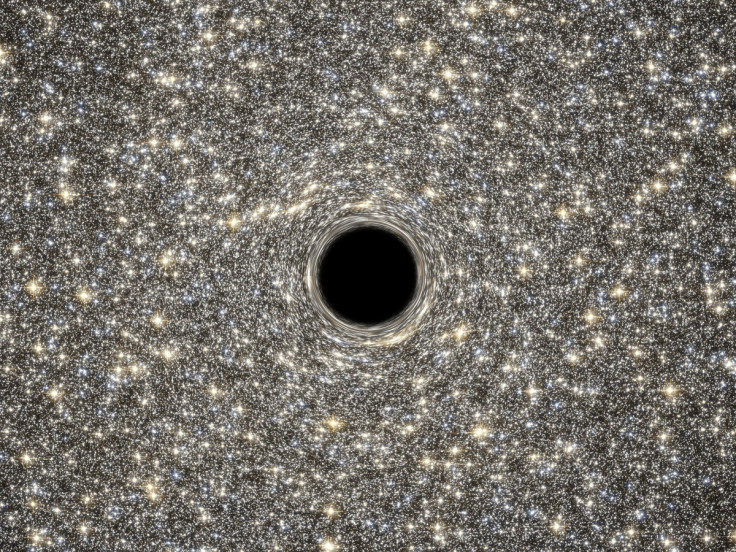Black holes can grow to 50 billion times the mass of the Sun... and then stop

Black holes can only grow to 50 billion times the mass of the Sun, before they lose their only source of 'food' and stop growing. Scientists discovered that black holes have a size limit, as when it gets so big, the gas which feeds the great void loses its energy, and falls into the unknown.
A researcher from the University of Leicester analysed the disc of gas which surrounds supermassive black holes at the centre of galaxies. He found that these gas discs are unstable, and can lose their energy and crumble when the outer edge of the black hole gets to a certain length.
"The significance of this discovery is that astronomers have found black holes of almost the maximum mass," said Andrew King, author of the study. "The mass limit means that this procedure should not turn up any masses much bigger than those we know, because there would not be a luminous [gas] disc."
The study, published in the Monthly Notices of the Royal Astronomical Society, says that once the black hole loses its gas disc, it stops growing. This suggests that 50 billion Suns roughly equals the maximum mass of a black hole.
King does, however, say that there are alternatives that would allow it to keep growing, without its own gas disc.
"Bigger black hole masses are in principle possible -- for example, a hole near the maximum mass could merge with another black hole, and the result would be bigger still," he confirmed.
He adds that these merged black holes would still not have a gas disc though, and therefore the usual manner of detecting black holes would not work. Other means of detection could still be used.
Traditionally, scientists detect black holes on Earth by analysing the gas discs. The gas molecules spin so quickly around the black hole that they heat up, and emit X-rays. On Earth, the X-rays can then be detected, to prove the presence of a black hole.
We could still detect merged black holes though, by investigating the manner in which light bends as it passes very close to it.
In our galaxy alone, there are around 100 million black holes. The Hubble Telescope gives us estimates of around 100 billion galaxies in our universe. That means there are roughly 10 quintillion black holes in our universe... and a new one is made every second.
© Copyright IBTimes 2025. All rights reserved.






















